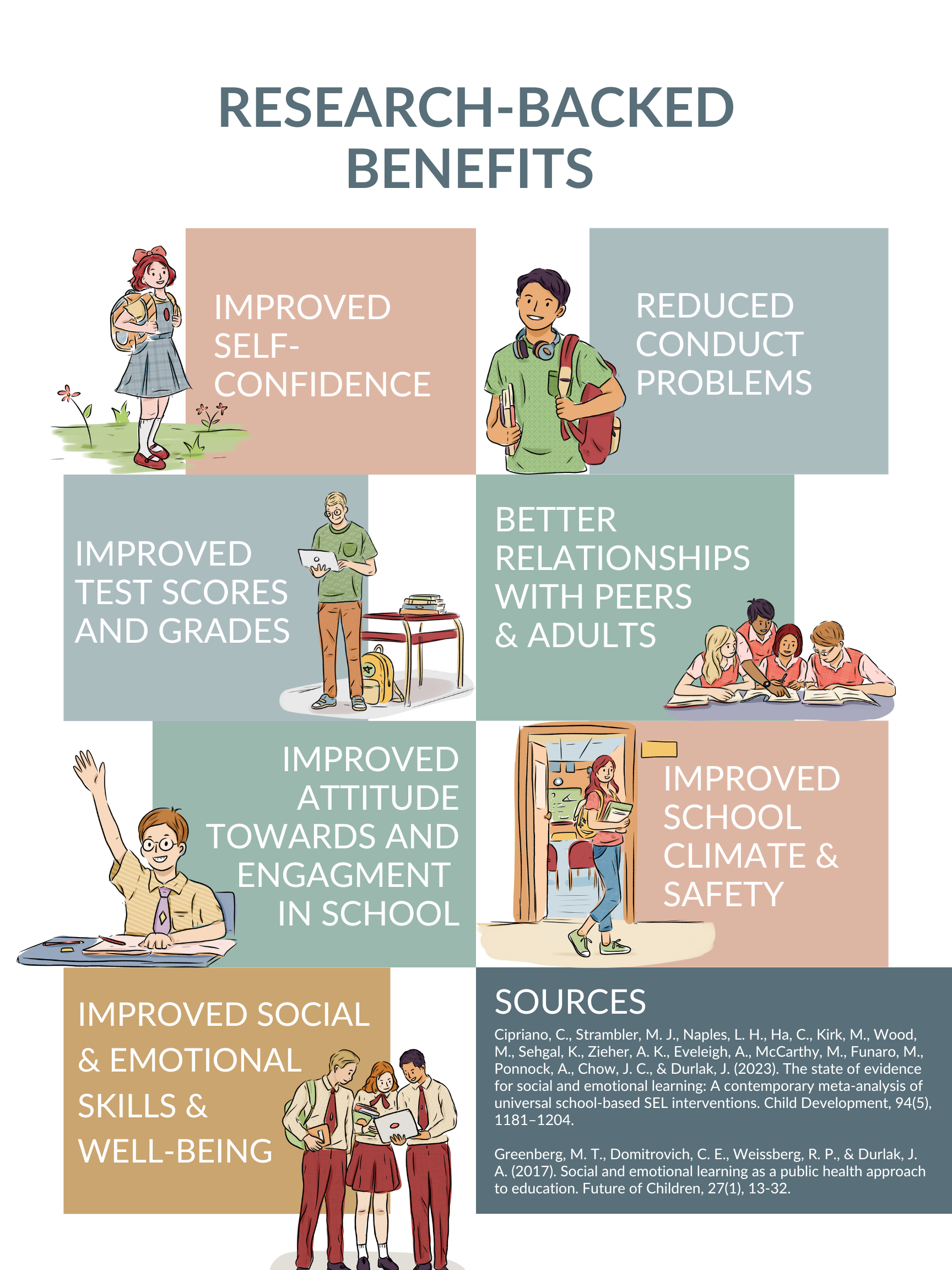research and benefits
Why Choose Modern Manners for Your Classroom?

Deliberately teaching life skills improves classrooms and lives!
Research over the last 15 years has demonstrated significant improvements in student outcomes when life skills are taught effectively. These gains are largest among students that face the greatest number of risk factors.
Modern Manners Classroom Edition is designed to effectively target the 5 main categories of life skills that produce proven results in the classroom.
Research has shown measureable student gains from teaching these
5 Key Life Skills
Examples of relationship skills lessons:
- Decline kindly
- Friendship takes time and work
- Be a good listener
- Express gratitude
Examples of self-management lessons:
- The way you smell matters
- You attract what you put into the world
- Advocate for yourself at school
- Do your part
Examples of social awareness lessons:
- Don't share hurtful things
- Don't leave just one person out
- Say no to ratings
- Keep your phone silent
Examples of responsible decision-making lessons:
- Nothing online is private
- Keep private information private
- Get permission
Examples of relationship skills lessons:
- Decline kindly
- Friendship takes time and work
- Be a good listener
- Express gratitude
Research shows that life skills programs are most effective when they follow the "SAFE" pedagogy.
See how Modern Manners Classroom Edition employs these strategies:
Sequenced
Each lesson has a sequenced format that introduces and illustrates the skill, followed by discussion or writing to deepen and personalize understanding, and finally an activity to aid application.
Active
Each Modern Manners lesson includes activities that actively engage students in the
learning process.
learning process.
Focused
Every part of each Modern Manners lesson is designed to target a specific life skill.
Explicit
The Modern Manners course teaches 52 specific individual skills that accrue to greater social and personal competence.
Modern Manners Classroom Edition is designed specifically for the needs of today's teens & tweens
Adolescents face new social, academic and emotional challenges, while simultaneously feeling a pull to handle them more independently. Teaching explicit skills and mindsets helps them navigate this developmental journey with more confidence and success.
Research shows that life skills programs that are most effective with adolescents appeal to their specific motivations--helping them "feel respected by both adults and peers" and helping them "gain status or admiration for those whose opinions matter to them."
multi-tasking opporTUNITIES

